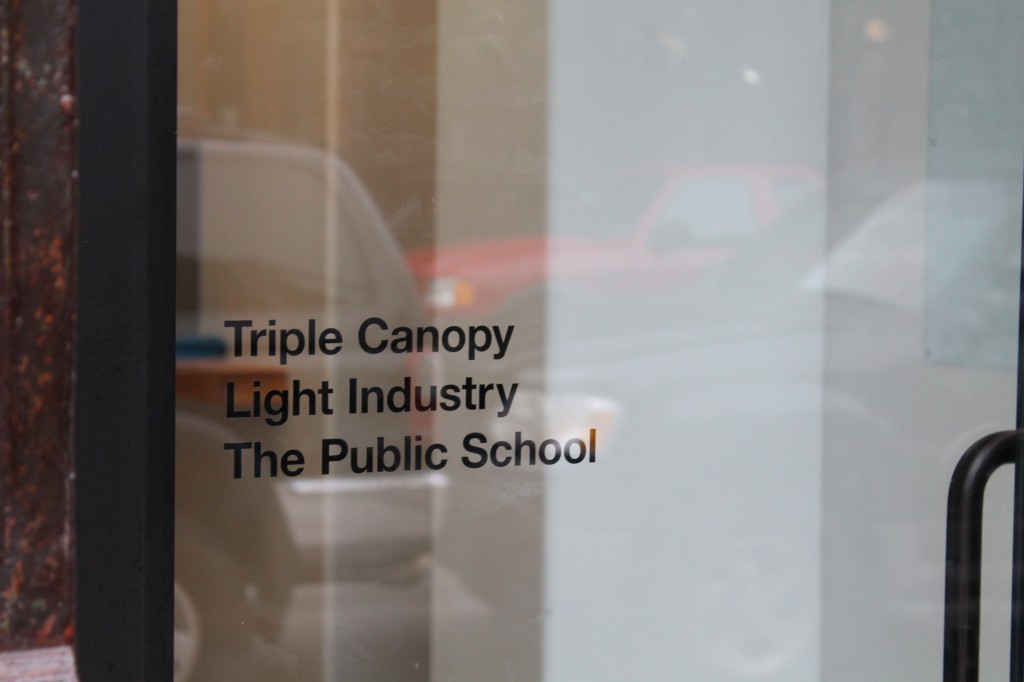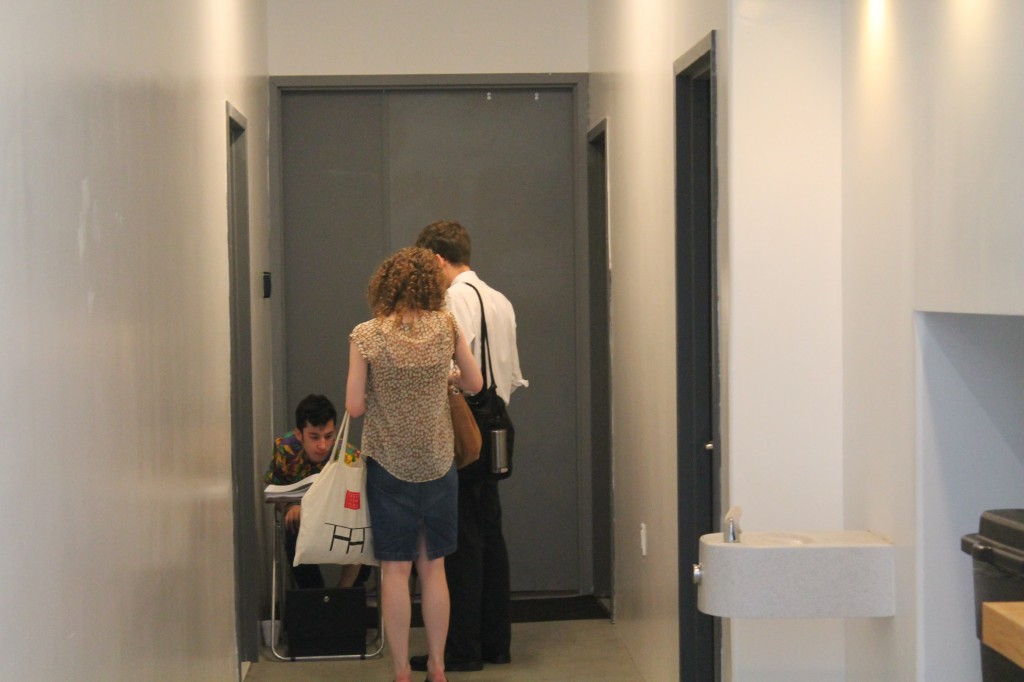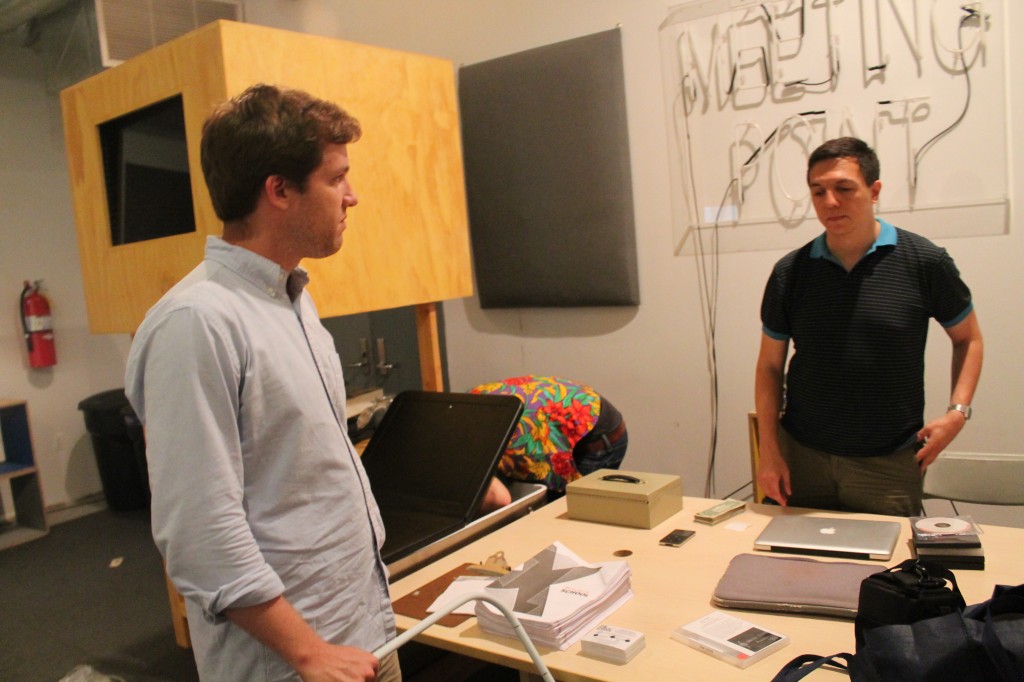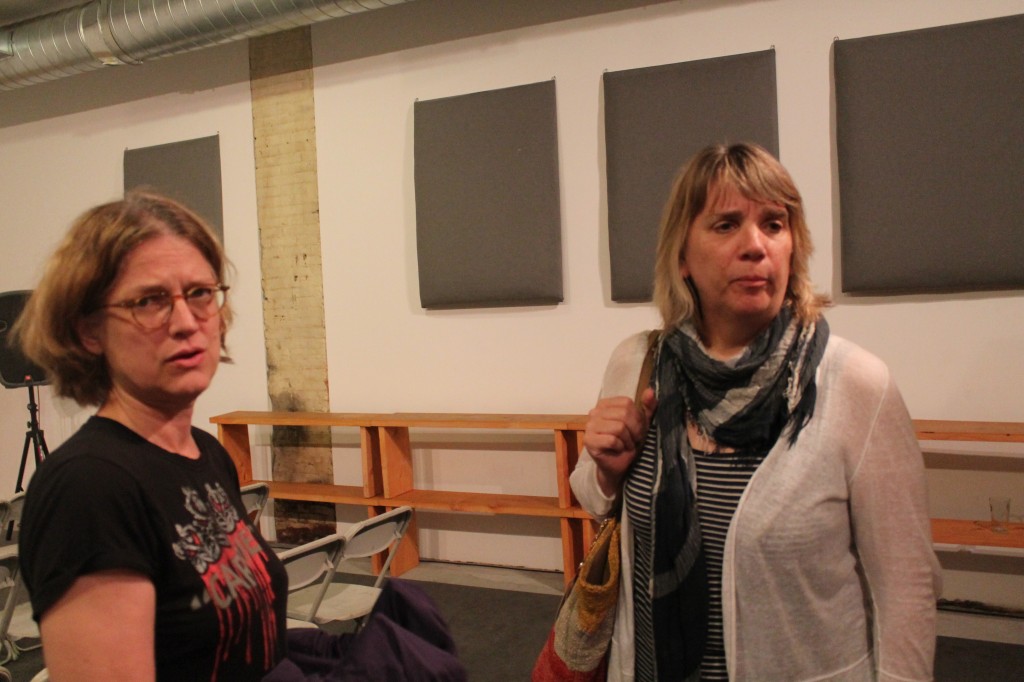I was invited to give a talk or presentation at Light Industry, one of those hip pop-up exhibition venues in Brooklyn. It has offered an impressive number of exciting events and I was delighted to be asked. I decided to program an evening of leftist documentaries and campaign films made by the radical collective Union Films in the 1940s and early 1950s. It was my first time at Light Industry, so I was eager to document my visit with a few quick snapshots.
The entrance:
The screening room:
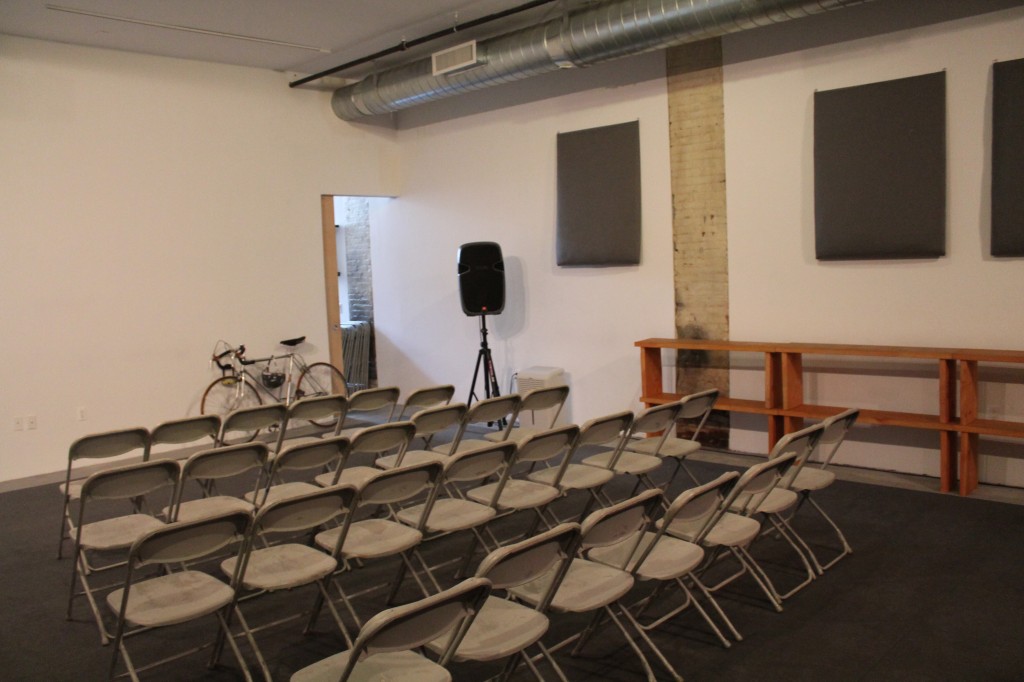
The curators:
Some of the audience:
I showed the following films:
Our Union (1947)
Time to Act (1948)
The Investigators (1948)
A People’s Convention (1948)
People Congressman: Vito Marcantonio (1948)
Here is the Light Industry announcement:
Light Industry
Thursday, June 27, 2013 at 7:30pm
Carl Marzani and Union Films, 1946-1953
155 Freeman Street, Brooklyn

Curated by Charles Musser
Received wisdom is that left-wing documentary filmmaking in the United States ended with the ill-timed release of Leo Hurwtiz and Paul Strand’s Native Land (1942)—not to be renewed until the rise of the New Left in the 1960s. Nothing could be further from the truth. Union Films was a radical, New York-based film collective that made over two dozen non-fiction films between 1946 and 1953. Its impresario, Carl Marzani, would ultimately spend three years in jail for his first anti-business motion picture, Deadline for Action (1946). Fighting back at every step, he twice took his case all the way to the Supreme Court, only to lose the decision by one vote. When not in the courts, he was making films.
Tonight’s program of Union Films productions begins with Our Union (1947), made for and about the United Electrical, Radio, and Machine Workers of America (UE), which funded many of the collective’s projects. The Investigators (1948) captures a remarkable piece of street theater featuring actor Hershel Benardi, who would later be blacklisted, and written by Abel Meeropol, best known today for penning the lyrics and music for Billie Holiday’s “Strange Fruit.” Many Union Films efforts were concerned with winning elections. This includes People’s Congressman (1948), a campaign film for Vito Marcantonio, who ran on the American Labor Party ticket in East Harlem—and won. It is narrated by Paul Robeson, who appears briefly in the film. Marzani and his collaborator, director Max Glandbard, also made campaign films for Presidential candidate Henry Wallace of the Progressive Party. A People’s Convention (1948) celebrates the “New Party” convention in Philadelphia, and provides glimpses of Wallace, Robeson, and the young Pete Seeger.
The most daring and accomplished organization producing leftist documentaries in the United States during the immediate post-World War II era, Union Films has gone unmentioned in every general history of documentary as well as various accounts of left-wing filmmaking. Hopefully this, the first retrospective program devoted solely to the cinematic achievements of Union Films, will contribute to a new appreciation and a new historiography. – CM
Charles Musser teaches Film Studies and Documentary Filmmaking at Yale University, where he is currently Acting Chair of the Theater Studies Program. He worked for two years as First Assistant Editor on the Oscar-winning documentary about Vietnam, Hearts and Minds (1974) and has recently completed the nonfiction feature, Errol Morris: A Lightning Sketch (2013). His many books on early cinema include The Emergence of Cinema: The American Screen to 1907 (1990), which received the Jay Leyda Prize in Cinema Studies; the Theater Library Association Award for best book on motion pictures, radio and television; and the Katherine Singer Kovacs Prize for best book in Film, TV and Video Studies. He is currently completing the book Media Shifts: Transformations in Audio-Visual Media and the US Presidential Elections of 1892/1896, 1948/1952 and 2004/2008.
Tickets – $7, available at door.
Please note: seating is limited. First-come, first-served. Box office opens at 7pm.

